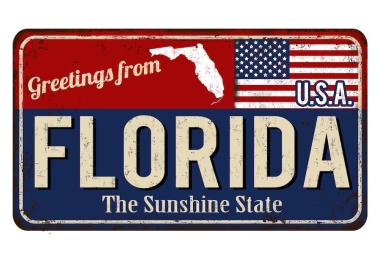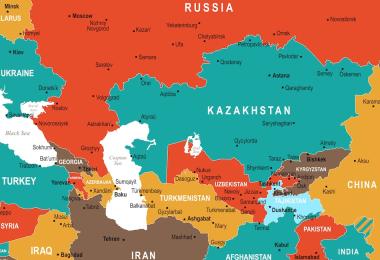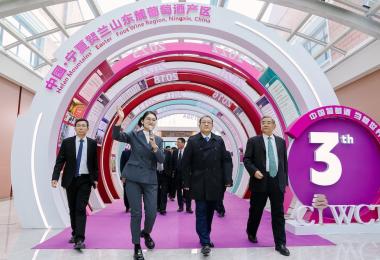Chicago’s many independent wine retailers come in all shapes and sizes, and cater to many markets, but despite their differences they all have one thing in common — they know their customers very, very well.
The retailers listed here have made astute observations regarding neighbourhoods, finances, dining behaviours, wine knowledge and more to intelligently build passionate and loyal customer bases. The distribution giants are Wirtz Beverage Group and Southern Wine & Spirits, but there are as many as 200 other distributors that are relied upon to keep selections fresh and unique, and customers intrigued.
Independent Spirits, Inc.
independentspiritsinc.com
Scott Crestodina has an affinity for the little guys, and he’s been massively successful because of it. Crestodina’s Independent Spirits has recently been named Chicago’s Best Wine Shop in a poll conducted by Chicago Reader — not too shabby for a two-year-old shop.
Offering 800 fine wines and another 600 spirits, beers, liqueurs, vermouths and more, the shop houses a very nice selection, while living up to its name. “I grew up watching Wal-Mart destroy the Midwest,” says Crestodina, explaining how the discouragement he feels about massive chains has shaped his own philosophy about with whom he prefers to do business.
“I like working with wineries and distributors that are small enough to pay attention to what they're doing,” he says. “It seems like 98% of the volume runs through the two big distributors,” he quickly guesses for the sake of conversation, because of their relationships with the city’s many bars and restaurants. “The remaining 2% of volume is handled by a couple hundred distributors who represent smaller, independent wineries.” Crestodina currently works with about 60 distributors, and the result is he’s able to offer wines that often can’t be found elsewhere.
“We seek out products that are made without the use of artificial chemicals,” he says. While there is a growing demand for wine and spirits that are chemical-free, it’s even simpler than that: “It‘s the right thing to do,” he says. “The wine and spirits business, like every other major industry, is dominated by polluters and plunderers and we prefer to not support that behaviour.” The respondents to Chicago Reader’s best wine shop poll seem to agree.
Red & White
redandwhitewineschicago.com
Red & White owner Nathan Adams has put a strong focus on natural wines and has caught plenty of attention doing so, having been named one the of the top natural wine shops in the US by Food & Wine, to name just one admirer.
His loft-like shop has an open but minimalistic feel, with a refined wine selection he calls “well-edited”. Small-production bottles and hard-to-find offerings from winegrowers who employ thoughtful farming practices and minimal intervention are what you’ll find.
“Nathan’s shop is an experience unlike a typical wine shop’s predictable, ‘How can I impress you with my memorised facts and figures about places I’ve never seen first-hand,’” says Tom MacDonald, owner of Chicago’s venerable Webster’s Wine Bar. “With Nathan you’re bound to get a genuine conversation, as simple as ‘What do you like to drink?’ to some fun chat about how a particular wine was impressively tasty with a specific recipe.”
When Adams isn’t “unpedantic, genuinely knowledgeable and passionately fun” in his own shop, he’s running the wine program for newly opened steakhouse sensation BoeufHaus.
LUSH Wine & Spirits
lushwineandspirits.com
“Why does everything have to be national?” asks Mitch Einhorn. “The homogenisation of the United States that applies to wine, beer, spirits, food, retail, is not a good thing. It makes it boring. It makes innovation difficult.” And Einhorn, owner of LUSH Wine & Spirits, is by all accounts an innovator; an independent’s independent.
He owns a famously unique bar that is presided over by a Harley Davidson-riding skeleton (Twisted Spoke); he makes his own wine (Chateau Nomad); and, unhappy with the wine selection at the big box stores and supermarkets, he opened his own wine shop (now two).
Einhorn is critical of the statistics-based beverage program profiles generated by the big distributors, and the “lazy” restaurants and shops that buy into it. “What they don’t understand is that the restaurant across the street was offered the same thing,” he says. “Now they have the same wine list and the same beverage program, and there’s no differentiation.
“We have to be very curated,” adds Einhorn. “We spend most of our time seeking out small producers; family farmers that have a vision of making really amazing wines that express where they’re from, what’s going on in the region, and pair well with food.”
LUSH Wine & Spirits can be found in the Roscoe Village and West Town neighbourhoods, which seem like very good places to be on Monday evenings, when Einhorn hosts his butter- and bacon-fat-fried chicken and Champagne dinners.
Schaefer’s Wines, Foods & Spirits
schaefers.com
On the heels of prohibition, George Schaefer opened his tavern north of Chicago in Skokie, bordering the then-dry communities of Evanston and Wilmette. Aptly named The Boundary, it was a quick success. Within a decade it became a package store and the name changed to Schaefer’s Wines, Foods & Spirits.
Various expansions and remodels over the decades have seen the wine operation grow in stature and status. When Bill Graham purchased the store in 2009, he and Anje Schaefer Cluxton — third-generation Schaefer and company president — launched yet another major remodel, incorporating a massive climate-controlled display case, and an event and tasting space named in homage to the shop’s origin: The Boundary Room.
Schaefer’s is considered by many to be the top fine wine shop for Chicago’s north shore communities, if not Chicago itself. Their cellar contains an abundance of original-source Napa Cabernets, Spanish and Italian reds, and French classics with highlights featuring First Growth Bordeaux and Côtes du Rhône-Villages.
Customers are quick to rave about the long-tenured, knowledgeable staff, the vast selection, and the popular annual warehouse sale.
Hart Davis Hart Wine Co.
hdhwine.com
Experienced wine auctioneers Michael Davis and Paul Hart partnered with fine wine buyer John Hart in 2004 to form Hart Davis Hart. Famed as the “leader of the US live auction market”, they also run a thriving Bordeaux futures business, and additionally make their entire collection available to the public through retail.
“We buy traditional retail stock from distributors, but then we’re not traditional in that we get a lot of our wine on consignment from private collectors,” says Marc Smoler, marketing manager. “It allows us to offer a different kind of inventory of mature, fine and rare collectables.”
While the entire collection’s 10,000-plus bottles are on premise, there is no traditional walk-in retail space with bottles on display. Full-time retail employees are always on hand, however, and the availability and condition of every bottle is meticulously catalogued in a real-time, downloadable inventory, featuring everything from 2014 Bordeaux to 1900 Madeira.
Customers range from seasoned collectors buying at auction, to people who don’t have space for a cellar, to people filling needs for special events. “We like to say, ‘Our cellar is your cellar,’” adds Smoler. “If someone says, ‘Hey, I feel like drinking an old bottle of Rhône tonight,’ instead of going down to their cellar they look at our website and select a great bottle of Pegau from the ‘90s, or something like that.”
Joe’s Wine Cellar
joeswinecellar.com
Former telecom industry executive Joe Dalton always wanted to open a wine store, so in 2008, planning for retirement, he bought a six-unit building with commercial space on the ground floor in Chicago’s artsy and vibrant Wicker Park neighbourhood. The shop shifted quickly from pure retail to a hybrid wine bar, with about 400 wines available in bottle, 100 craft beers, indoor and outdoor seating and music. “Cool shop, good vibe,” says Dalton.
Napa Technology WineStations allow customers to use prepaid cards to get a taste, half glass or full glass, and reload the card as needed. Dalton estimates 30% to 35% of revenue is through the by-the-glass wine bar, which he attributes to his location on a sidewalk-café-lined street and neighbourhood mix of high-income professionals, artists and, “Millennials deciding what to do with their sociology degrees.”
“It’s a cool, hip area,” says Dalton. “I always wanted to open a wine store that reflected my cellar — good value wine, not necessarily inexpensive, but what I think is a good value.” Roughly 70% is from smaller wineries.
Dalton works with about 30 distributors for three reasons: “I think I get a good deal; we’re finding some really cool wines; and they don’t have enough production, so, normally, they’re not going to show up in all the big box stores.”
So how is retirement going? “I was thinking I’d put on a red beret, grow a pony tail, and hang out behind the counter,” says Dalton, laughing. “The reality is we’re a little more successful than I had originally anticipated.”
The Noble Grape
noblegrape.net
For six years Alex Basich has been the go-to wine shop in his hip and quickly gentrifying Wicker Park neighbourhood. With more than 400 still wines, 40 sparkling, 20 desert, some sake, craft beer and spirits, he’s got the right mix, and at the right price — most bottles are under $20.00.
“We have a very young demographic,” says Basich. “They know they like wine, they just don’t know anything about it, other than that they don’t want to spend a lot of money.” He helps them along with twice-weekly tastings scheduled when the store is likely to be busy. “I like to do it when people are actually around and buying wine,” he says. “I don’t like to hide them on Saturday afternoons.”
Basich works regularly with about 35 smaller distributors from whom he sources about 70% of his wine, which is likewise mostly from smaller wineries. “If it’s available at a grocery store or from one of the other big guys, they’re getting a better price than I can,” says Basich. “So I try to go with the smaller producers.”
The many BYOB restaurants in the neighbourhood drive business, and Basich has tailored the shop to suit their needs. “I don’t have anybody who has a 10,000-bottle cellar coming in here,” he says. “We keep it simple. We make it easy for them to take a bottle home and enjoy it without having to think too much about it or having to delve too much into this geeky wine world that we live in.”
Paired Wine Co.
pairedwine.com
Owners Joe Giannini and Tommy Spinosa personally select food-friendly wines for their Paired Wine Co.’s clientele to whisk away to one of the many BYOB restaurants in Lakeview’s vibrant Halsted neighbourhood.
Each wine has a pairing note and offers pairing suggestions — the shop’s name not being coincidental. Customers can browse through notes to make quick but educated decisions before heading to dinner, and all whites, rosés and sparkling wines are available chilled so they’re ready to go.
There’s a wine club, offering two or three interesting wines each month, which also come with food pairing suggestions. The club meets monthly to taste the wines with food. “It’s a great way to sip and make friends,” says Viktorija Todorovska, wine author and accredited sommelier who has advised on the project.
A by-the-glass wine bar will soon take form, with 16 wines available through self-pour machines. “The wines will change seasonally and include good representations of well-known and well-liked categories, as well as lesser-known and unique wine,” says Todorovska. “There really is something for every taste.”
Other notables
Bodega Ramos
bodegaramos.com
Perman Wine Selections
permanwine.com
Printers Row Wine Shop/Gentile’s Wine Shop
printersrowwine.com








